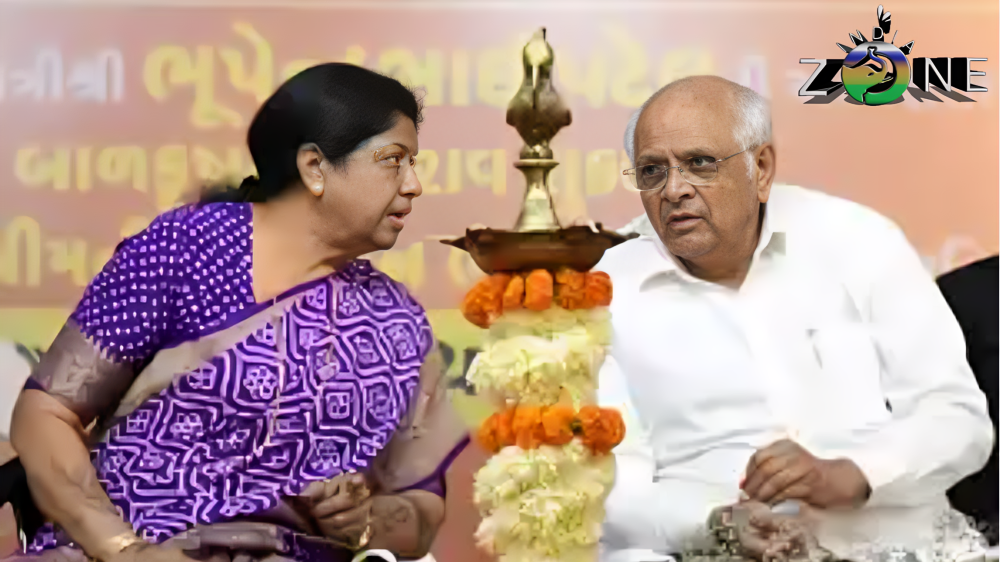
The narrative of Rohini Acharya’s birth is not only singular but also highly symbolic, entwining fate, thankfulness, and a peculiar naming custom that distinguished her within the political dynasty of the Rashtriya Janata Dal (RJD). According to the Hindu calendar, she was born in 1979, coinciding with the cosmic time of the Rohini Nakshatra—a detail that would unexpectedly inspire her name. This story was further enhanced by the attention given during this critical period by renowned Patna gynecologist Dr. Kamala Acharya. Lalu Prasad Yadav’s unwillingness to pay Dr. Acharya any fees, The patriarch of the RJD family and a prominent figure in Bihar politics, he embodies the altruism and compassion that defined the medical community.
Lalu Prasad Yadav’s demand that Dr. Acharya be paid for her services resulted in a novel proposal that would symbolically tie the physician to the Yadav family for all time. In addition to leaving a lasting memory, Dr. Acharya’s suggestion that Lalu give her surname to his newborn daughter was intended to establish a connection that went beyond traditional patient-doctor partnerships. Lalu’s consent to give his daughter the name Rohini Acharya is evidence of his tremendous appreciation and respect for Dr. Acharya, demonstrating a very intimate bond that transcended social and political conventions.
The naming tale of Rohini Acharya is noteworthy not only for its emotional resonance but also for marking a break from the family’s customary naming rituals. The distinctive names Rohini and her older sister Misa Bharati have, which contrast with the typical Yadav surname, highlight the diversity within the family. Both Misa Bharati and Rohini, who derived their surnames from cherished family physicians, are examples of the family’s preference for names with important personal or historical connotations. Misa Bharati was named after the Maintenance of Internal Security Act (MISA), which was the reason Lalu Prasad was imprisoned during the Emergency.
However, in keeping with the more traditional naming customs, Rohini’s siblings—her brothers Tej Pratap Yadav and Tejashwi Prasad Yadav—kept the Yadav surname. The siblings’ different surnames reflect the various influences and experiences that have shaped their identities in addition to highlighting the unique stories that make up the Yadav family’s tapestry.
As Rohini Acharya enters politics and makes her first appearance in the Lok Sabha elections, her life story—starting with her birth and the unusual circumstances surrounding her naming—adds an intriguing new chapter to the extensive account of the RJD’s founding family. The narrative incorporates themes of appreciation, deference, and the creation of unforeseen relationships, offering a profoundly human context for the political trip she is about to undertake.
The story of Rohini Acharya’s rise to prominence in politics, especially in light of the 2024 Lok Sabha elections in Bihar, is intertwined with themes of family legacy, selflessness, and the profound political legacy of the Rashtriya Janata Dal (RJD). Rohini’s tale is filled with a deep feeling of duty and dedication, not only to her family but also to the greater political and social ethos her parents have represented. She is the second of seven daughters of Lalu Prasad Yadav and Rabri Devi, both of whom had served as Chief Ministers of Bihar.
The intriguing story of Rohini’s naming adds a level of fate and personal fascination to her political career. Named in a way that combines customary wisdom with a loving tribute to her physician, Rohini distinguishes herself not only by name but also by deeds inside the Yadav household. Her decision to give her father a kidney in December 2022 was a significant act of love and filial piety that won her over the people and emphasized her dedication to family values—a quality that is highly valued in Bihar’s sociopolitical environment.
The fact that Lalu Prasad Yadav publicly acknowledged Rohini’s sacrifice on a number of occasions and referred to her with fondness as “Rohini Achari” demonstrates his pride and emotional connection to her. In addition to serving as a symbol of Rohini’s willingness to serve and make sacrifices, this act of kidney donation also reflects her personal character, which is highly appealing to voters.
Rohini’s official entry into politics was marked with the announcement of her candidacy from the Saran constituency, a historically significant seat for the Yadav family, having been represented by Lalu Prasad himself. As the fourth of Lalu and Rabri’s nine children to take up politics, this choice places her in the lineage of political activism. The decision is noteworthy because it opens a new chapter in the political history of the RJD and positions Rohini to highlight her distinct combination of personal bravery and family heritage.
Within and outside of Bihar’s political system, her siblings Misa Bharati, Tej Pratap Yadav, and Tejashwi Prasad Yadav have all forged successful careers. The many ways that the children of Lalu and Rabri have interacted with their political inheritance are shown in Misa, who is seeking to make a comeback in the Lok Sabha elections following past setbacks, and Tejashwi and Tej Pratap, who have important political positions. The Yadav political dynasty gains depth with Rohini’s arrival into this arena. She brings with her a personal sacrifice narrative and a name with a distinct history of its own.
As Rohini Acharya enters the political spotlight, her transformation from a daughter renowned for making a great personal sacrifice to a political contender signifies not only the carrying on of a political legacy but also the creation of a new route that combines public duty with personal integrity. Her bid to represent the Saran constituency in the forthcoming Lok Sabha elections is a significant political and personal development, as it reflects both the lasting influence of one of Bihar’s most well-known political families and the changing political landscape of the state.
The choice of Rohini Acharya as the Rashtriya Janata Dal (RJD) candidate for the Saran seat is a momentous event in the political history of Bihar. It reflects not only the Lalu family’s unity and strategic considerations, but also Rohini’s developing public image and political potential. Her nomination highlights a shared confidence in her capacity to continue her father Lalu Prasad Yadav’s legacy in a constituency that has been essential to the family’s political path, as described by RJD sources as the “unanimous choice.”
Rohini’s background, which includes a medical degree and a life free from the direct political demands of India, offers a story of adaptability and exposure to other cultures. Like her sister Misa Bharati, Rohini too earned her MBBS degree, but she decided against becoming a doctor in favor of living abroad after marrying software developer Samresh Singh. Her decision to go to the US and then Singapore, together with the controversies surrounding her wedding (which included claims of lavish celebrations), enhance her public persona and paint her as someone who has successfully negotiated both privilege and scrutiny.
Though she chose not to pursue it, rumors in 2017 over her potential entrance into the Rajya Sabha point to a circumspect approach to active politics counterbalanced by a steady presence on social media. Rohini has participated in political debate through her platforms, criticizing political rivals including JD(U) leader Nitish Kumar and Bihar chief minister as well as protecting her family. Her candor shows a strong affinity with the political philosophies that guide the RJD’s mission, especially when it comes to social justice concerns and the political positions of her father and brother.
Her response to Samrat Choudhary, the Deputy Chief Minister of Bihar and president of the Bihar BJP, who accused her of receiving the Saran ticket in exchange for her kidney donation, shows that she is willing to take on political opponents and protect the dignity of her family and herself. Her response, which highlights her unselfish love and dedication to her father and Bihar, depicts her not only as a devoted daughter but also as a strong individual who can successfully negotiate the challenges of a political life.
Following her kidney donation to her father, Rohini’s status within the Lalu family and the larger RJD community has certainly increased—a move that goes beyond political calculation, displaying great familial loyalty and personal sacrifice. Her presence in Bihar further solidifies her status as a pivotal character in the family’s public narrative, particularly during momentous family milestones like Lalu’s 74th birthday. Her description of her parents’ devotion as a holy obligation, comparable to a pilgrimage, speaks to conventional beliefs and societal norms and may win over a large portion of the public.
Her social media posts, which typically highlight socialist symbols and promote social justice, also suggest a political worldview that is closely aligned with the fundamental tenets of the RJD. In the Saran constituency, Rohini is presented as a candidate who epitomizes both continuity and rebirth for the RJD because of this connection as well as her personal narrative and family lineage.
All things considered, Rohini Acharya’s candidacy from Saran for the Lok Sabha elections combines public service, political ideology, and personal legacy. As the RJD attempts to navigate the opportunities and challenges of the 2024 elections, it is hoped that her remarkable journey—from a medical graduate to a political candidate, marked by significant personal sacrifices and a deep engagement with social and political issues—will strike a chord with voters in Saran and beyond.
The tribute that Rohini Acharya paid to Dr. Rammanohar Lohia on the day of his birth, highlighting his contributions to politics based on equality and humanity, is a clear expression of the ideologies that have informed her public utterances and political awakening. Her admiration for Lohia fits in with the socialist heritage that the Rashtriya Janata Dal (RJD) promotes and places her in a political thought continuum that prioritizes social justice and inclusivity—two concepts that are fundamental to her developing political identity.
This ideological stance is taking place against the backdrop of a divisive political debate ignited by Lalu Prasad Yadav’s remarks at a rally on March 3rd, when he compared Prime Minister Narendra Modi’s lack of family ties with his family’s political involvement in order to defend the advancement of his relatives in public office. The Bharatiya Janata Party (BJP) responded angrily to this comment, launching the “Modi Ka Privar” campaign as a counter-narrative that highlighted the sharp contrasts in political tactics and family ties between the RJD and the BJP.
A senior RJD leader’s support of Rohini Acharya’s candidacy from the Saran constituency amid these political scuffles highlights a strategic viewpoint that goes beyond familial ties. Given the current political environment, the claim that Rohini represents the party’s best alternative in Saran reflects a deliberate endorsement of her candidacy based on merit and political viability rather than simple nepotism. This response supports the notion that Rohini’s nomination is a calculated, not merely familial, choice by implying that the party has recognized her ability to connect with voters and successfully advance its goals.
The way in which Lalu Prasad Yadav is choosing candidates for the next elections has caused dissatisfaction among the RJD’s allies in the Indian National Developmental Inclusive Alliance (INDIA), especially the Congress. This is demonstrated by the way in which he has given RJD tickets to nine candidates, one of whom is Kumari Anita, the wife of former don Ashok Mahato, for the Munger seat. The lack of a unified seat-sharing agreement among coalition partners for the 40 constituencies in Bihar is the source of the unhappiness, underscoring the difficulties in coalition politics and the finely balanced interests and methods that characterize political alliances.
The deliberations of Lalu and the disputes pertaining to the process of choosing candidates provide light on the complex relationships between political families, coalition politics, and the overall electoral plan in Bihar. In light of this complicated political landscape, Rohini Acharya’s campaign serves as an example of how legacy, ideology, and the practical issues of electoral politics interact. Rohini’s role and the ideological foundations she brings to her campaign will be crucial in determining the RJD’s chances in the upcoming elections as the party navigates these difficulties, highlighting the continuous development of political discourse and practice in Bihar.












